Special Committee on Decolonization
The United Nations Special Committee on the Situation with Regard to the Implementation of the Declaration on the Granting of Independence to Colonial Countries and Peoples, or the Special Committee on Decolonization (C-24), is a committee of the United Nations General Assembly that was established in 1961 and is exclusively devoted to the issue of decolonization.[2]
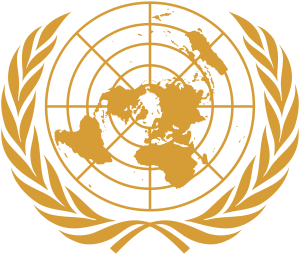 | |
| Abbreviation | C24 |
|---|---|
| Formation | 27 November 1961 |
| Legal status | Active |
| Headquarters | New York, United States |
Head | Chair |
Parent organization | United Nations General Assembly |
History
When the United Nations was created, there were 750 million people living in territories that were non-self-governing. However, the Charter of the United Nations included, in Chapter XI, provisions calling for recognition of the rights of inhabitants of territories administered by its Member States. It called for these Member States to aid in the establishment of self-governance through the development of free political institutions, as well as to keep in mind the political aspirations of the peoples.[3][4]
The Charter also created, in Chapter XII, the international trusteeship system. This system allowed for the administration and supervision of territories placed under the control of the United Nations by Member States wishing to grant independence to their colonial possessions. These "Trust" territories were administered by the United Nations Trusteeship Council, which was created by Chapter XIII of the Charter.[5][6]
Hoping to speed up the process of decolonization, the General Assembly passed Resolution 1514 (XV), also known as the Declaration on the Granting of Independence to Colonial Countries and Peoples. The Declaration stated that all peoples have the right to self-determination, and that immediate steps should be taken to end colonialism unconditionally.[7]
Members
On 27 November 1961 the General Assembly created the precursor to the Special Committee by Resolution 1654 (XVI), which established a Special Committee of 17 members to examine the application of the Declaration and to make recommendations on how to better implement it. The original members were:[8]
On 7 December 1962, the General Assembly added seven seats to the Committee, bringing the total number of members up to 24.[9] The number increased again in 2004, 2008 and 2010.[10] The number 24 continues to be used when describing the Committee even though it now has 29 members.
International Decades for the Eradication of Colonialism
In 1990, the General Assembly proclaimed 1990–2000 as the International Decade for the Eradication of Colonialism by Resolution 43/47, with the ultimate goal being the full implementation of the Declaration on the Granting of Independence to Colonial Countries and Peoples. The General Assembly adopted the report of the Secretary-General dated 13 December 1991 as the Plan of Action for the Decade.[11][12]
On 8 December 2000, the General Assembly proceeded to proclaim the Second International Decade for the Eradication of Colonialism, lasting from 2001 to 2010 via Resolution 55/146. The Resolution called upon Member States to redouble their efforts to implement the Plan of Action during the Second Decade.[13]
On 10 December 2010, the General Assembly proclaimed 2010–2020 as the Third International Decade for the Eradication of Colonialism via Resolution 65/119. The Resolution called upon Member States to intensify their efforts to continue to implement the Plan of Action during the Third Decade.[14]
Working methods
The Committee holds its main session in New York in June, as well as an annual seminar in the Caribbean and Pacific in alternate years. In 2018, the seminar was held in St. George's, Grenada.[10]
At each main session, the Committee reviews the list of territories to which the Declaration on the Granting of Independence to Colonial Countries and Peoples is applicable and makes recommendations on its implementation and on the dissemination of public information on decolonization to the local population. It also hears statements from Non-Self-Governing Territories (NSGTs), dispatches missions to these NSGTs and organizes seminars on the political, social and economic situation in the NSGTs.[10]
The Committee reports to the General Assembly on its work through the Fourth Committee (Special Political and Decolonization).[15]
Listed non-self-governing territories
As of February 2017, there were 17 territories on the United Nations list of non-self-governing territories:[16]
| Territory | ||||||
|---|---|---|---|---|---|---|
| Capital | Currency | Language | Administering state | Continent | Notes | |
| Pago Pago | United States dollar | English | Oceania | [17][note 2] | ||
| The Valley | East Caribbean dollar | English | Americas | [18][19][note 3] | ||
| Hamilton | Bermudian dollar | English | Americas | [19][20] | ||
| Road Town | United States dollar [note 4] | English | Americas | [19][21] | ||
| George Town [note 5] | Cayman Islands dollar | English | Americas | [19][22] | ||
| Stanley | Falkland Pound | English | Americas | [19][23][note 6] | ||
| Papeete | CFP franc | French | Oceania | [24][25] | ||
| Gibraltar | Gibraltar pound | English | Europe | |||
| Hagatña | United States dollar | English | Oceania | |||
| Plymouth | East Caribbean dollar | English | Americas | |||
| Nouméa | CFP franc | French | Oceania | |||
| Adamstown | New Zealand dollar | English | Oceania | [19][26] | ||
| Jamestown | Saint Helena pound | English | Africa | [19][27] | ||
| Fakaofo | New Zealand dollar | English | Oceania | |||
| Cockburn Town | United States dollar | English | Americas | |||
| Charlotte Amalie | United States dollar | English | Americas | |||
| El Aaiún | Sahrawi peseta | Arabic | Africa | [note 10] | ||
As of 2016, several of the territories on the list have rejected independence (or any other change of status) through referendums, such as Gibraltar in 2002[28] and the Falkland Islands in 2013.[29] Likewise in 2013 the elected Assembly of French Polynesia objected to that territory's inclusion on the list.[30] There is also controversy surrounding the viability of several of the listed territories as independent nations, such as Pitcairn, which had a population estimated at just 57 in 2015.[31]
Membership

The following are the current members of the Committee:[10][32]
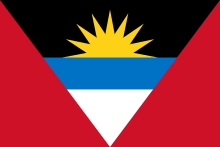
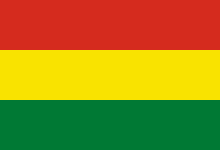


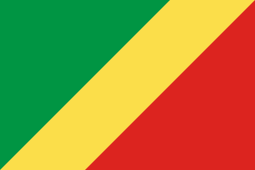


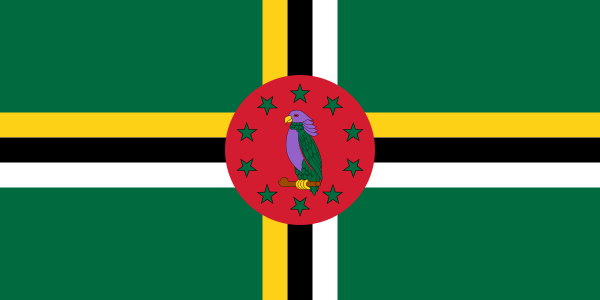

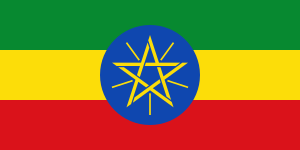
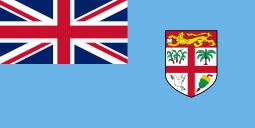
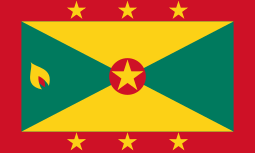



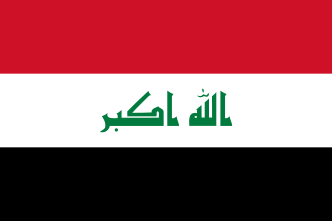


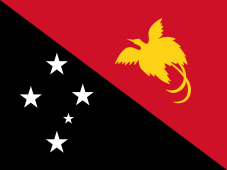

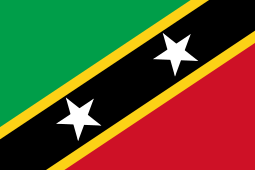

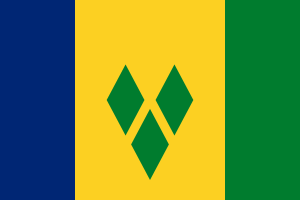
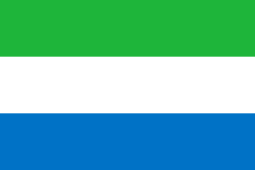



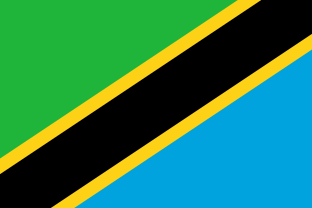

Controversy concerning members
Various members on various occasion have blocked the admission and re-admission of their respective territories for decolonization, despite various independence movements within those territories.
- Indonesia has hindered the re-admission of West Papua, and the admission of Minahasa for decolonization.[33][34]
- China has hindered the admission of Tibet, East Turkestan, Inner Mongolia, Hong Kong, Macau, Taiwan, Ningxia, Guangxi, and Manchuria for decolonization.[35][36][37][38][39][40][41][42]
- Russia has hindered at least 26 territories from admissions for decolonization. Among these Russian territories are Chukotka, Khanty-Mansi, Nenets, Yamalo-Nenets, Adygea, Altai, Bashkortostan, Buryatia, Chechnya, Chuvashia, Crimea, Dagestan, Ingushetia, Kabardino-Balkaria, Kalmykia, Karachay-Cherkessia, Karelia, Khakassia, Komi, Mari El, Mordovia, North Ossetia-Alania, Sakha (Yakutia), Tatarstan, Tuva, and Udmurtia.[43][44] Forced ethnic migrations have been conducted by many members of the committee to retain control on certain territories.[45][46]
As such, various organizations have stated that the committee is 'no longer relevant' as many of its members are colonizers themselves, controlling various territories wanting independence.[47][48][49]
Bureau
The following make up the bureau of the Special Committee for the 73rd Session of the General Assembly:[10]
| Name | Country | Position |
|---|---|---|
| Walton Alfonso Webson | Chair | |
| Dian Triansyah Djani | Vice-Chair | |
| Anayansi Rodriguez Camejo | Vice-Chair | |
| Adikalie Foday Sumah | Vice-Chair | |
| Bashar Ja’afari | Rapporteur | |
Recommendation on Puerto Rico
The Special Committee on Decolonization refers to the Commonwealth of Puerto Rico (an unincorporated territory of the United States) as a nation in its reports, because, internationally, the people of Puerto Rico are often considered to be a Caribbean nation with their own national identity.[50][51][50] Most recently, in a June 2016 report, the Special Committee called for the United States to expedite the process to allow self-determination in Puerto Rico. More specifically, the group called on the United States to expedite a process that would allow the people of Puerto Rico to exercise fully their right to self-determination and independence. ... [and] allow the Puerto Rican people to take decisions in a sovereign manner and to address their urgent economic and social needs, including unemployment, marginalization, insolvency and poverty".[52]
In one of the referendums on the political status of Puerto Rico held in 2012, only 5.49% of Puerto Ricans voted for independence, while 61.16% voted for statehood and 33.34% preferred free association. Another then-recent referendum was held in 2017 with over 97% voting in favor of statehood over independence, though historically low voter turn-out (23%) has called into question the validity of the poll. Much of the low turn-out has been attributed to a boycott led by the pro-status-quo PPD party and the pro-independence PIP party.[53]
See also
- Special Political and Decolonization Committee
- UN list of non-self-governing territories
- Dependent territories
- Sovereigntism (Puerto Rico)
- Proposed political status for Puerto Rico
Notes
- Also known in the form conventional as Territory of American Samoa.
- Dependency status: unincorporated and unorganized territory of the US; administered by the Office of Insular Affairs, US Department of the Interior.
- Overseas territory of the United Kingdom.
- The economy is closely tied to the larger and more populous US Virgin Islands to the west; the US dollar is the legal currency.
- Also known as on Grand Cayman.
- The Falkland Islands include the two main islands of East and West Falkland and about 200 small islands.
- Also known as Overseas Lands of French Polynesia.
- Also known as Pitcairn, Henderson, Ducie, and Oeno Islands.
- Territory under de facto Moroccan control. Claimed by SADR.
- The legal status the territory and the issue of sovereignty unresolved; territory contested by Morocco and Polisario Front (Popular Front for the Liberation of the Saguia el Hamra and Rio de Oro), which in February 1976 formally proclaimed a government-in-exile, the Sahrawi Arab Democratic Republic (SADR), based out of refugee camps near Tindouf, Algeria, led by President Mohamed Abdelaziz.
References
- "Premier attends decolonisation seminar". The BVI Beacon. 10 May 2019.
- "Committee of 24 (Special Committee on Decolonization)". United Nations and Decolonization. United Nations. n.d. Retrieved 11 March 2019.
- "Chapter XI". United Nations. United Nations. n.d. Retrieved 11 March 2019.
- "History". United Nations Department of Public Information. United Nations. n.d. Archived from the original on 22 December 2008. Retrieved 11 March 2019.
- "Chapter XII". United Nations. United Nations. n.d. Retrieved 11 March 2019.
- "Chapter XIII". United Nations. United Nations. n.d. Retrieved 11 March 2019.
- United Nations General Assembly Session 15 Resolution 1514. Declaration on the granting of independence to colonial countries and peoples A/RES/1514(XV) 14 December 1960. Retrieved 11 March 2019.
- United Nations General Assembly Session 16 Resolution 1654. The situation with regard to the implementation of the Declaration on the granting of independence to colonial countries and peoples A/RES/1654(XVI) 27 November 1961. Retrieved 11 March 2019.
- United Nations General Assembly Session 17 Resolution 1810. The Situation with Regard to the Implementation of the Declaration on the Granting of Independence to Colonial Countries and Peoples A/RES/1810(XVII) 7 December 1962. Retrieved 11 March 2019.
- Manhire, Vanessa, ed. (2018). United Nations Handbook 2018-19 (PDF) (56th ed.). Wellington: Ministry of Foreign Affairs and Trade of New Zealand. pp. 63–64. ISSN 0110-1951.
- United Nations General Assembly Session 43 Resolution 47. International Decade for the Eradication of Colonialism A/RES/43/47 22 November 1988. Retrieved 11 March 2019.
- United Nations General Assembly Session 46 Report of the Secretary-General 634 Rev. 1. Implementation of the Declaration on the Granting of Independence to Colonial Countries and Peoples A/46/634/Rev.1 13 December 1991. Retrieved 11 March 2019.
- United Nations General Assembly Session 55 Resolution 146. Second International Decade for the Eradication of Colonialism A/RES/55/146 8 December 2000. Retrieved 11 March 2019.
- United Nations General Assembly Session 65 Resolution 119. Third International Decade for the Eradication of Colonialism A/RES/65/119 10 December 2010. Retrieved 11 March 2019.
- "General Assembly and Peacekeeping". United Nations. United Nations. n.d. Archived from the original (PDF) on 9 October 2017. Retrieved 9 March 2019.
- "United Nations Official Document". www.un.org. Retrieved 23 August 2018.
- American Samoa at the CIA World Factbook Retrieved 13 July 2014.
- Anguilla at the CIA World Factbook Retrieved 13 July 2014.
- British Overseas Territories
- Bermuda at the CIA World Factbook Retrieved 13 July 2014.
- British Virgin Islands at the CIA World Factbook Retrieved 13 July 2014.
- Cayman Islands at the CIA World Factbook Retrieved 13 July 2014.
- Falkland Islands at the CIA World Factbook Retrieved 13 July 2014.
- French Polynesia at the CIA World Factbook Retrieved 13 July 2014.
- United Nations General Assembly Session 68 Resolution 93. A/RES/68/93 Retrieved 13 July 2014.
- Pitcairn at the CIA World Factbook Retrieved 13 July 2014.
- Saint Helena at the CIA World Factbook Retrieved 13 July 2014.
- Daly, Emma (8 November 2002). "Gibraltar Rejects Power-Sharing Between Britain and Spain". The New York Times. ISSN 0362-4331. Retrieved 3 January 2016.
- Defence correspondent, Caroline Wyatt; News, BBC (12 March 2013). "Falklands referendum: Voters choose to remain UK territory". BBC News. Retrieved 3 January 2016.
- "Tahiti assembly votes against UN decolonisation bid", Radio New Zealand International, 17 May 2013
- "Pitcairn: Islands & Settlement - Population Statistics in Maps and Charts". www.citypopulation.de. Retrieved 3 January 2016.
- "Members". United Nations and Decolonization. United Nations. n.d. Retrieved 11 March 2019.
- Doherty, Ben; Lamb, Kate (30 September 2017). "West Papua independence petition is rebuffed at UN". the Guardian. Retrieved 23 August 2018.
- Netralnews.Com. "Netralnews.com - House Speaker on Minahasa Wishing Independence: Gov't Should Not Stay Silent". Retrieved 23 August 2018.
- What is China’s argument on Tibet? freetibet.org, accessed 9 November 2018
- "Why is there tension between China and the Uighurs?". BBC News. 26 September 2014. Retrieved 23 August 2018 – via www.bbc.com.
- Radchenko, Sergey. "The Truth About Mongolia's Independence 70 Years Ago". The Diplomat. Retrieved 23 August 2018.
- "Do Hong Kongers want independence?". BBC News. Retrieved 23 August 2018.
- "First Hong Kong, now Macau – China's former Western colonies demand democracy and face crackdowns". Retrieved 23 August 2018.
- Editorial, Reuters (3 April 2018). "Taiwan, China spar over Taiwan premier's independence remarks". Reuters. Retrieved 23 August 2018.
- "China's hidden Muslims find sense of belief". 13 April 1996. Retrieved 23 August 2018.
- "Manchuria, Manchukuo, Tibet and National Autonomy by William P. Meyers". www.iiipublishing.com. Retrieved 23 August 2018.
- Eurasia, Paul Goble for Window on; network, part of the New East (15 August 2014). "From Siberia to Kaliningrad: the fledgling independence movements gaining traction in Russia". the Guardian. Retrieved 23 August 2018.
- "Russia's Separatist Movements - Fair Observer". www.fairobserver.com. 13 July 2013. Retrieved 23 August 2018.
- "Forced Ethnic Migration". Retrieved 23 August 2018.
- "Special Committee on Decolonization 'No Longer Relevant' to Overseas Territories of United Kingdom, Fourth Committee Told - Meetings Coverage and Press Releases". www.un.org. Retrieved 23 August 2018.
- "Special Committee on Decolonization Would Urge Secretary-General to Maintain All Functions of Decolonization Unit of Political Affairs Department – Meetings Coverage and Press Releases". www.un.org. Retrieved 23 August 2018.
- Pearson, Jessica Lynne (4 May 2017). "Defending Empire at the United Nations: The Politics of International Colonial Oversight in the Era of Decolonisation". The Journal of Imperial and Commonwealth History. 45 (3): 525–549. doi:10.1080/03086534.2017.1332133.
- United Nations. General Assembly. Special Committee on the Situation With Regard to the Implementation of the Declaration on the Granting of Independence to Colonial Countries and Peoples (1971). Report of the Special Committee on the Situation with Regard to the Implementation of the Declaration on the Granting of Independence to Colonial Countries and Peoples. 23. United Nations Publications. pp. 10–11. ISBN 978-92-1-810211-9.
- XIV Ministerial Conference of the Movement of Non-Aligned Nations. Durban, South Africa, 2004. See pages 14–15. Archived 31 July 2009 at the Wayback Machine
- "Special Committee on Decolonization Approves Text Calling upon United States Government to Expedite Self-Determination Process for Puerto Rico". United Nations. UN. 20 June 2016. Retrieved 21 February 2017.
- "PDP to boycott status referendum". 20 April 2017.